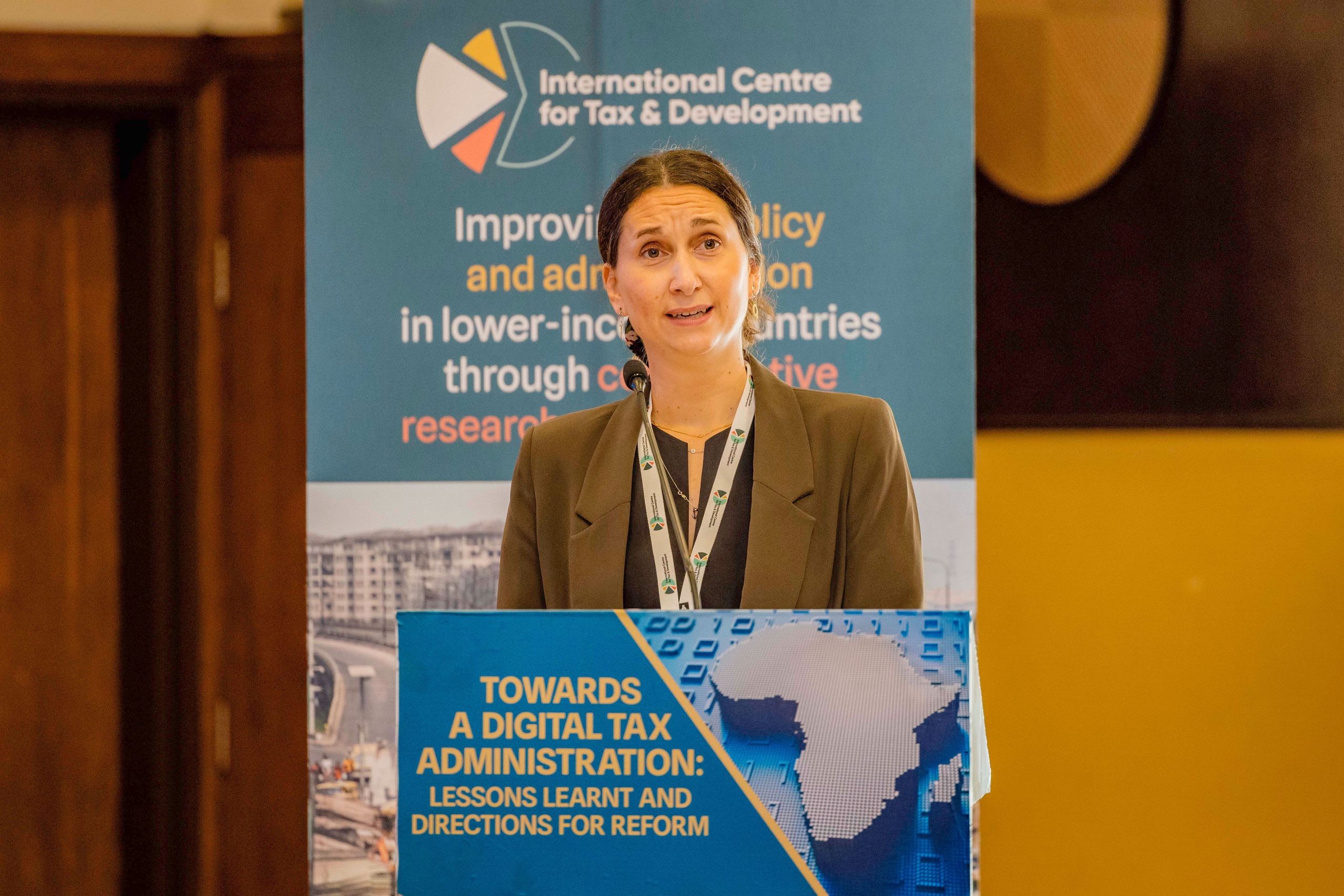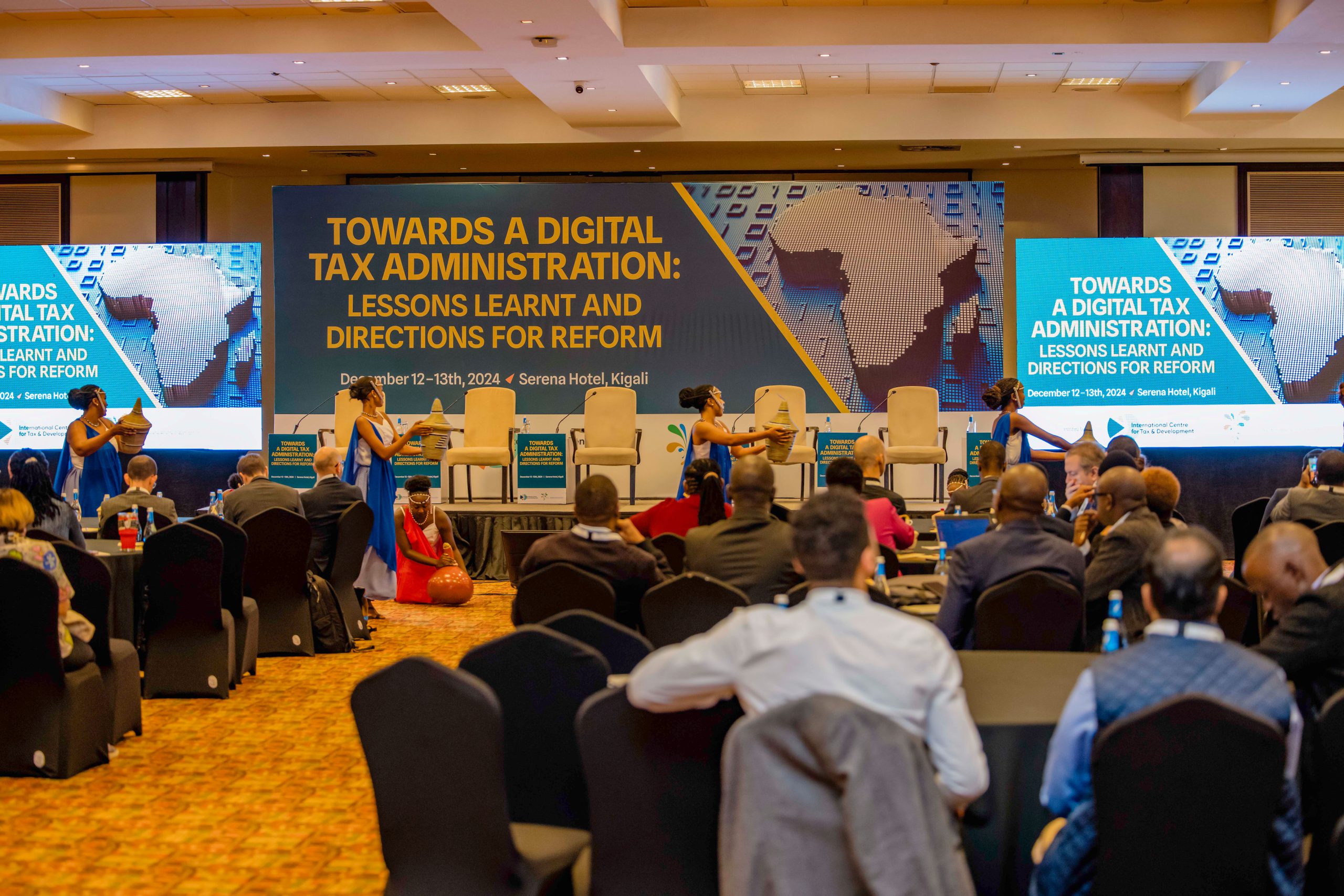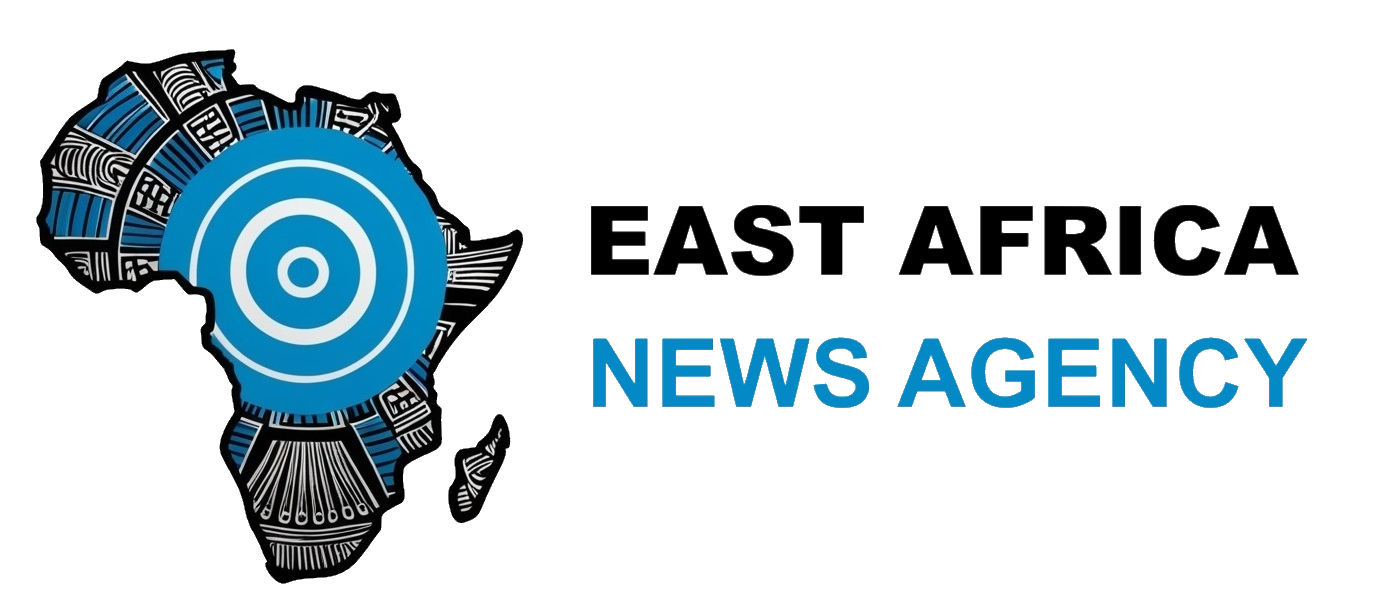Policymakers, students and tax consultants from Africa and past are assembly in Kigali to debate vital facets that can form the way forward for digital transformation in tax administration.
The two-day convention that began on Thursday, December 12, was organized by the International Centre for Tax and Development (ICTD) in partnership with Rwanda Revenue Authority (RRA) beneath the theme: “Towards a digital tax administration: Lessons learnt and directions for reform.”
Tax consultants delved on adopting synthetic intelligence (AI) to boost the effectivity and effectiveness of their programs.
Antoine Sebera, the Government Chief Innovation Officer on the Rwanda Information Society Authority (RISA), emphasised the transformative function of AI highlighting Africa’s fast digital transformation, with governments leveraging know-how to bridge financial disparities, foster inclusion, and improve public administration by streamlining bureaucratic processes and constructing belief.
In Rwanda, important progress has been made in digital governance, with all important authorities companies now accessible on-line. The nation goals to realize common entry to e-government companies by 2029.
Despite the developments, Sebera stated challenges persist in leveraging know-how for tax administration. He noticed that fragmented and incomplete knowledge hinder correct monitoring and evaluation of digital transactions, necessitating safe data-sharing mechanisms and interoperability. Additionally, deploying superior instruments for monitoring, analyzing, and imposing tax compliance, he stated, requires technological experience and infrastructure.
“Building capacity in data analytics, artificial intelligence, and cybersecurity is essential in overcoming these obstacles. Particularly, AI has a very big potential to revolutionize digital tax administration and governance in low-income countries,” Sebera stated.
“AI can significantly improve the efficiency and effectiveness of tax systems. For example, AI-driven tools can help identify patterns of tax evasion, optimize resource allocation and provide real-time support to the taxpayers,” he added.
He referred to as for worldwide partnerships with organizations and the personal sector to deal with challenges hindering digitalization progress.
Sebera pressured that moral and regulatory issues, akin to knowledge privateness, algorithmic bias, and accountability, shouldn’t be missed.
“Developing international locations should set up sturdy authorized frameworks and moral tips to manipulate the usage of AI in public administration. Infrastructure challenges, together with dependable web entry, electrical energy, high-performance computing servers, and knowledge facilities have to be addressed.
Rwanda has made important progress in digitalizing its tax administration. Notable milestones embody the introduction of the Automated System for Customs Data (ASYCUDA) ++ system in 2004, later upgraded to ASYCUDA World in 2012, which halved customs clearance occasions and saved $6.8 million yearly in commerce prices, in line with the TradeMark East Africa. ASYCUDA is a computerized customs administration system that covers most overseas commerce procedures.
In 2011, Rwanda Revenue Authority (RRA) launched the E-Tax system to revolutionize tax submitting and funds, lowering errors and administrative burdens. The 2013 introduction of Electronic Billing Machines (EBMs) enhanced VAT compliance and curbed tax evasion. The EBM2 system upgraded in 2017 present real-time knowledge seize and improved fraud prevention.
“Between 2017 and 2022, VAT collection increased by 61%, and income tax collection has surged by 95%. In 2021, income tax overtook PAYE as the second largest revenue contributor, driven by the use of EBM in every taxable activity, a policy initiated in 2020,” stated the RRA Commissioner General, Ronald Niwenshuti.
Studies performed by RRA and the Tax Administration Research Centre additional show the affect of digital reforms. For instance, VAT elevated by 5.4% in tax-to-GDP ratio, and EBM2 adoption led to a 12% rise in VAT assortment amongst new customers. Firms utilizing EBM-supported items achieved a median income improve of $33,400 in comparison with non-users.
These developments replicate Rwanda’s progress towards self-reliance, the RRA CG stated. Today, home income fund over 54% of the nationwide funds, up from 51.2% the earlier yr. “This aligns with national strategies such as Vision 2020, Vision 2050, and the National Strategy for Transformation,” Niwenshuti added.
Giulia Mascagni, the Executive Director of the International Centre for Tax and Development (ICTD), counseled Rwanda’s management in digital tax transformation.
She highlighted the 10-year collaboration between ICTD and Rwanda, which has facilitated knowledge sharing for rigorous analysis, coverage evaluation, and analysis, contributing to improved income assortment and taxpayer companies.
Mascagni emphasised the significance of digitization in tax administration, which enabled the ICTD to discover rising tendencies in digital monetary companies, cellular cash, and their implications for tax administration.
“This conference is an opportunity to learn from one another and lay the foundation for the next decade of progress in digitizing tax administration and government services,” Mascagni concluded.
During the two-day convention, panelists with discover key parts associated to Other knowledge administration and governance, digital inclusion, digital public infrastructure, bettering knowledge high quality and integrity, digital funds, knowledge trade programs; and underscored the necessity for sturdy tax ecosystems that foster equity and innovation.
The ICTD is a world analysis physique on tax and growth, significantly in low-income international locations, offering governments with sturdy proof to assist them design and implement simpler and equitable tax programs.
















